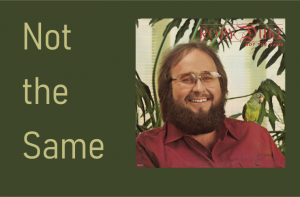Colossians 3:1-11
Notes:
Chapter 3 of Paul’s letter to the Colossians starts by setting the focus on heavenly things, not on things of this world that would appeal to the flesh:
- Be heavenly minded (vs. 1-4)
- Die to the flesh (vs. 5-7)
- A new man (vs. 7-11)
Be heavenly minded
Paul instructs Christians to stay focused on eternal heavenly matters:
- Seek those things that are above (in heaven), which are in the presence of Christ. (v. 1)
- Desire, with affection, heavenly things. (v. 2)
- Make heavenly things a priority.
- Heavenly things include the Word of God, the fruits of the Holy Spirit, and spiritual gifts from God.
- Cease to desire or love things of the earth. (v. 2)
- Things of the earth include anything that falls under the world’s value system and not under God.
- Things of this world appeal to the flesh, or the old man, which is passed away; now, the Christian has a new life that is hidden in Christ. (v. 3)
- There is a new state of being for the believer, which will appear when Christ returns in glory. (v. 4)
Die to the flesh
Paul stresses to the Christian that the fleshly desires of the past must be put away (to death):
- Die to the fleshly habits of the past: (v. 5)
- fornication
- uncleanness
- inordinate affection (unnatural passions)
- evil concupiscence (strong evil desires)
- covetousness (the idolization of possessions or money)
- Understand that God’s wrath is reserved for those who continue in fleshly habits, rejecting the saving grace offered by God. (v. 6)
- Christians must remember that these fleshly habits were part of their unconverted lifestyle, but are no longer subject of the Christian walk. (v. 7)
A new man
Paul lists several more fleshly characteristics that should not be evident in the Christian’s life, noting that the Christian is a new creature with new habits:
- The newly converted Christian is no longer under dominion of sin, or it’s habits, including the following: (v. 8)
- anger
- wrath
- malice
- blasphemy
- filthy communication (language unbecoming a Christian)
- Practice honesty – not deceit because deceitfulness was a characteristic of the old man. (v. 9)
- Ignorance of God’s will is no longer an excuse for a Christian – newness in Christ brings new knowledge that the unconverted person cannot perceive. (v. 10)
- Through salvation, the new man is in the image of God the Creator, and as such should strive for knowledge, righteousness, and holiness – rather than the pursuit of fleshly satisfaction.
- The opportunity to receive the gift of Salvation through Christ is not limited to certain people. It is available to all mankind – those created in His image, regardless of nationality, race, prior religious beliefs, social status, etc. (v. 11)
- Although some would use an argument of predestination or the election of saints, God’s Word makes it clear that salvation is freely available to everyone, yet subject to their free will to receive it.
- Note 2 Peter 3:9 (KJV): The Lord is not slack concerning his promise, as some men count slackness; but is longsuffering to us-ward, not willing that any should perish, but that all should come to repentance.
Questions:
- Why does it mean to be “heavenly minded”?
- What are some ways that “things above” conflict with “things on the earth”?
- What are some heavenly things that a Christian teen (or adult) should desire?
- Describe how the world tries to attract teens (or adults) to have an affection for its value system?
- If heavenly things can be described as “eternal” or “everlasting”, how would you describe things of the earth?
- List five fleshly activities that teens should eliminate from their new life in Christ.
- Why is it important to be honest and not deceitful as a Christian?
- Is it possible for a teen in your youth group to be faking their Christianity? What kind of evidence would you expect to find if this were the case?
- What is the danger of a Christian continuing to be involved in fleshly activities after trusting Christ as Savior?
- Consider this question, “What are the qualifications for salvation?” Is that a legitimate question? Why or why not?
















